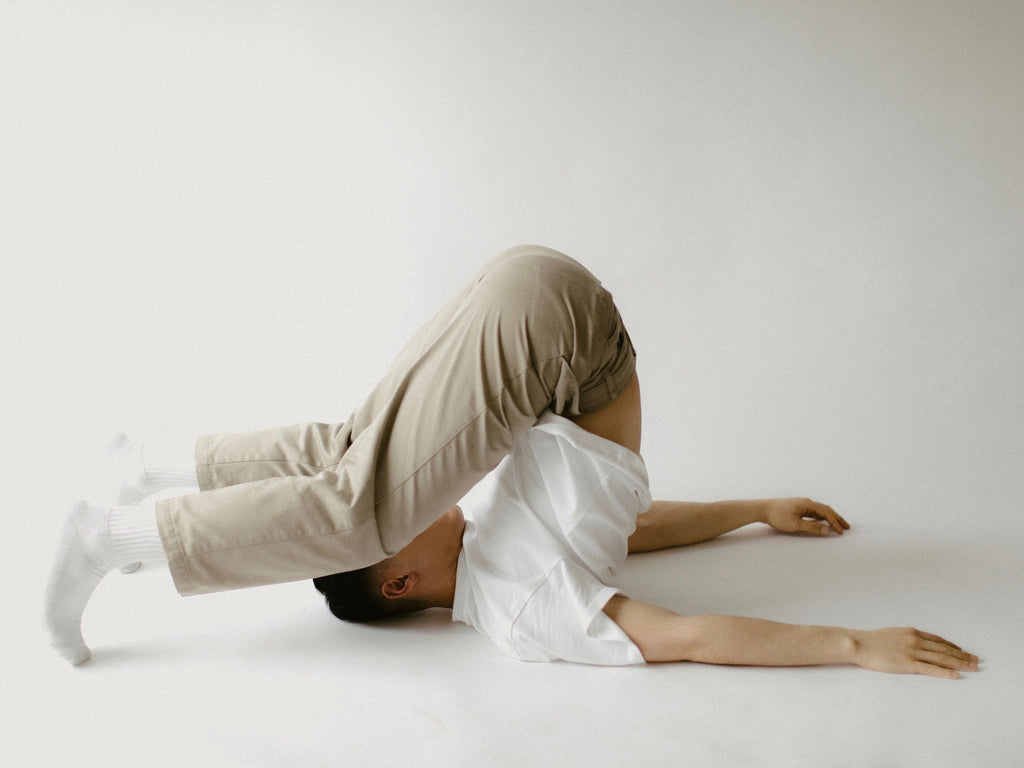The Ups and Downs of Hormonal Birth Control
The pill has been prescribed for decades, but at what cost?
This content was developed in partnership with Conscious City Guide.
Hormonal birth control is nothing new. We’ve been swallowing pills since the ‘60s and there are over 12 million women in the United States who use the pill, and 100 million worldwide. Ask anyone to describe their experience being on ‘the pill’ and you’ll likely get similar responses: “messed with my emotions,” “my skin was terrible and my depression was out of control,” or “I didn’t like the way my body felt, I was constantly in a fog.”
As journalist Anna Silman writes in The Cut, “what might hormonal contraception be doing to our minds, our moods, our behaviour? And if science hasn’t yet found a clear answer, how much does that matter?”
Silman’s exploratory piece inspired me to look back on my own birth control journey. Upon becoming sexually active with my first boyfriend, we had the ‘conversation,’ which ended with me deciding to go on the pill – because that’s what you did at 17. I filled my prescription willingly and continued for two years, dismissing the mood swings and emotional outbursts while remembering to take the tiny green pill at the same time every day. I remained on and off it throughout my twenties, until deciding I couldn’t handle what some call ‘the crazies’ and eventually explored other options.
“I filled my prescription willingly and continued for two years, dismissing the mood swings and emotional outbursts while remembering to take the tiny green pill at the same time every day”
In her Atlantic piece, Greer Donley, Assistant Professor at the University of Pitsburgh’s School of Law, notes, “Even healthy women can face side effects ranging from debilitating to annoying, such as mood disorders, migraines, libido loss, prolonged bleeding, and weight gain.”
Physical and emotional side effects aside, the fact remains that a number of us rely on it as a form of birth control not only for pregnancy prevention, but also to regulate menstrual cycles, control acne or manage health issues. Silman’s piece begs the question: why are some of us going off birth control and why are we talking about it now?
Lisa, a 39-year-old sommelier, had numerous challenges since going on birth control as a teenager. “Among my girlfriends who were also on the pill, we talked about mood swings, weight gain, and acne control. We certainly were not talking about blood pressure or cancer.” With each new attempt at a new form of birth control, Lisa recalls she was never fully educated on them.
“Even when I worked hard to advocate for myself, ask questions and be informed during my (almost over) fertile years, I was stymied at every corner. Not one of my (all female) doctors took the time to work through the options, side effects, and risks associated with taking these drugs.”
“Not one of my (all female) doctors took the time to work through the options, side effects, and risks associated with taking these drugs”
Many people I reached out to echoed similar experiences. Andrea, a 33-year-old photographer, explains, “I felt like sometimes I was possessed -- the mood swings got so extreme. It wasn’t until a really good OBGYN said to me bluntly, ‘You know you don’t have to be on the pill?’ that this occurred to me. No one had really asked me before and, in turn, I never questioned it.”
Chelsea, 35, was initially prescribed the pill to regulate her hormones and period pain, even though she hated how she felt on it. It was a holistic nutritionist who finally helped her with her pain issues. “Looking back, I am astonished that not one doctor ever inquired about my diet or lifestyle.”
The connection between birth control and depression has been a topic of much discussion recently. In a Man Repeller article, Haley Nahman questions how doctors will state their case that such side effects are far less serious than an unwanted pregnancy. “It’s the very same mindset that kept me from prioritizing my own health, both physical and mental, for so many years in my own journey to stopping a baby from growing in me.”
“Doctors will state their case that such side effects are far less serious than an unwanted pregnancy”
While abortion issues remain a continued debate in parts of the United States (not to mention globally), the conversation surrounding our relationship with birth control may now be more important than ever. The normalization of its varying side effects -- along with the lack of education on just what we’re putting in our bodies -- couldn’t be more relevant.
Nahman concludes, “The socio-economical consequences of unwanted pregnancies are not to be discounted, but neither are the often crippling consequences of hormonal birth control.”
Photo courtesy of Karolina Grabowska.
This post is tagged as:
You may also like...
The Latest
People & Places
How Ara Katz is Redefining “Self-Care” as Rooted in Science with Seed
The co-founder, mother, and self-proclaimed serial entrepreneur unpacks her philosophy on what it means to be well. Ara Katz hates the word “success”. Not because of its listed definition in a di...

Do Good Werk
9 Passive-Aggressive Email Phrases That Are Basically Evil
A Rosetta Stone for every time you want to :’).

Woo Woo
Get to Know Your Astrological Birth Chart
How to find meaning in the stars — and what it means for you.

People & Places
The 5 Best Places In New York To Meet Your Next Investor
Where to rub shoulders with the city's movers and shakers.

Do Good Werk
10 Unhealthy Thoughts You Convince Yourself Are True as a Freelancer
If you work alone, you might be particularly susceptible to distorted thoughts that hurt your mental health.

People & Places
Creating a Conference-Meets-Summer-Camp for Adult Creatives
An interview with Likeminds founders Rachael Yaeger and Zach Pollakoff This past September, I sat in front of an obituary I wrote for myself after a session with a death doula. No, I didn’t know w...

People & Places
When Something Golde Stays: An Interview with Golde’s Co-CEOs
“For us it was never a question,” says Issey Kobori, speaking of the decision to build a business with his partner Trinity Mouzon Wofford. At just shy of 27, Kobori and Wofford have secured a host ...

Better Yourself
Are They Toxic? Or Are They Human?
There’s a difference between putting up boundaries and putting up walls, and the latter is what breaks relationships.

Do Good Werk
How To Combat Seasonal Affective Disorder At Work
Here’s what to do if seasonal affective disorder starts to take a toll at the office.

People & Places
Reclaiming Womxn's Wellness Spaces from a White-Dominated World
How The Villij built a collective that their community can connect to.








